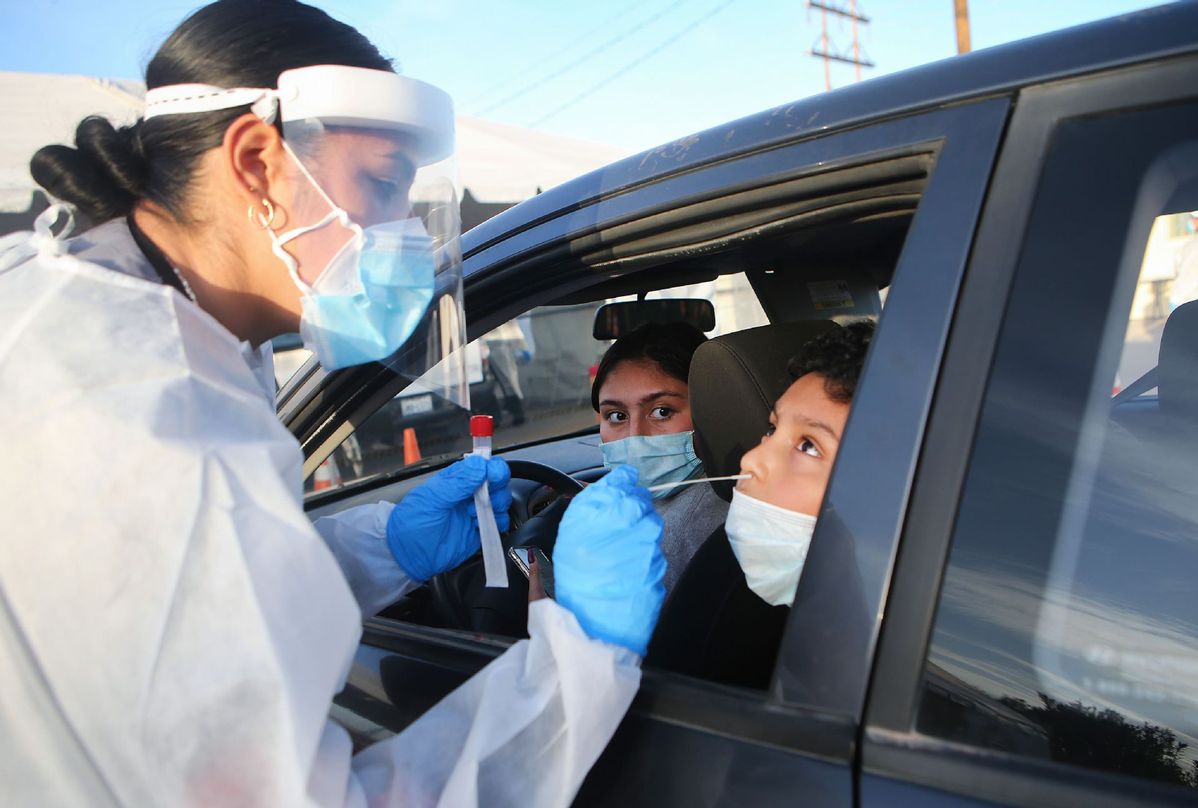
A frontline healthcare worker administers a nasal swab test at a drive-in COVID-19 testing site amid a surge of COVID-19 cases in EI Paso on Nov 13, 2020 in Texas, US. (Photo: Agencies)
The World Health Organization, or WHO, on Monday voiced deep concern about a surge of new COVID-19 cases in Europe and the Americas and warned about the risk of complacency following news of vaccine developments.
US biotech company Moderna claimed on Monday that its novel coronavirus vaccine is 94.5 percent effective based on preliminary data. It came a week after its competitor Pfizer claimed that its vaccine candidate is 90 percent effective.
WHO Director-General Tedros Adhanom Ghebreyesus said there has been encouraging news about novel coronavirus vaccines, but insisted "this is not the time for complacency".
"Right now, we are extremely concerned by the surge in COVID-19 cases we're seeing in some countries," he said during a virtual news conference from Geneva, in reference to the situation in Europe and the Americas, where he said health workers and health systems are being pushed to the breaking point.
The US had reported a total of 11 million COVID-19 cases and 246,586 deaths by Monday, by far the largest number in the world, according to Johns Hopkins University. The average number of new cases there reported each day during the past week has exceeded 150,000.
Tedros said countries that have invested in COVID-19 case-finding, care and isolation, cluster investigations, adequate testing with rapid results, contact tracing, and supported quarantine are facing much less disruption.
"A laissez-faire attitude to the virus – not using the full range of tools available – leads to death, suffering, and hurts livelihoods and economies," he said.
The WHO chief noted that health workers on the frontlines have been stretched for months.
"They are exhausted," he said. "We must do all we can to protect them, especially during this period when the virus is spiking and patients are filling hospital beds."
Mike Ryan, executive director of the WHO Health Emergencies Programme, said many countries have controlled the spread of infection by using comprehensive measures.
"China is among those countries," he said while also listing the Republic of Korea, Singapore, Japan, New Zealand and Australia.
He said the approach in those nations has varied and had different cultural settings "but what's been common in their approach is the relentless focus on doing it all".
He cited relentless focusing on mobilizing community action, testing, contact tracing and quarantine as key in keeping the virus at very low levels.
"We have been saying for months and months, (it's) a comprehensive strategy aimed at controlling the virus, aimed at protecting the vulnerable, aimed at saving lives," Ryan said.
And he dismissed concern about a small number of new cases detected in China recently.
"We have no evidence right now that the situation in China is anything other than extremely low level of the virus, with the very aggressive response to any upsurges that you've seen," he said.
Ryan also said the kind of mass testing conducted in China will not be something that is available in all nations.
"It takes a huge amount of resources to do. And for many countries that's not feasible, or even an advisable option,"he said.
China has conducted mass testing for millions of people in cities including Qingdao and Beijing after having encountered only a few dozen new cases.


